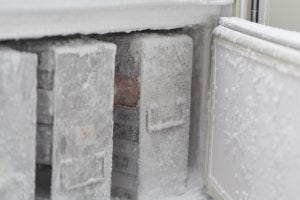December 17, 2020

US military officials say several trays of Pfizer and BioNTech’s COVID-19 vaccine needed to be replaced after being stored at excessively cold temperatures.
Details of the replacement were disclosed yesterday during a press conference about efforts to roll out the vaccine.
General Gustave F. Perna, who is running the US’ Operation Warp Speed (OWS), said some vaccine sent to California and Alabama was replaced after it was stored at a temperature lower than the recommended 70°C.

Image: iStock/Sinhyu
“We had two trays of Pfizer vaccine that arrived in California in two separate places and as we were tracking the temperature we noted that the temperature actually got colder than minus 80. [It] went to minus 92.
“We locked those trays down. Pfizer and OWS working with FedEX and UPS…they [the trays] never left the truck. We returned them immediately back to Pfizer and we sent immediate shipments to replace those two trays.”
He went on to say that “All the way on the other side of the country in Alabama, two trays were received at one location…same anomaly. It went to minus 92. Again, we were able to stop and quarantine the vaccine and get a replacement shipment immediately.
Perna added the military is working with Pfizer, the FDA and the CDC to determine if the temperature anomalies impacted the safety of the vaccine.
Manufacturing issue
Pfizer has also encountered some manufacturing issues according to US Secretary of Health and Human Services Alex Azar.
Azar said, “We have recently been informed by them [Pfizer] about various challenges they might have in their manufacturing.
He added, “We will ensure by whatever mechanism, we provide them full support to ensure that they can produce for the American people [and] fulfil their contractual commitments.”
More generally Azar said he is confident the US has sufficient supplies of vaccine.
“We now have 900 million doses of vaccine that we have contracted for the delivery of. We have options that increase that to a total of three billion doses.
“We have 100 million of Moderna’s [vaccine] set between now and March 31, 100 million of Pfizer’s [vaccine] between now and March 31. We have 100 million additional Moderna [vaccines] in the second quarter. We are working actively with Pfizer and, I will just say, that I’m very optimistic that we will conclude a successful result.”
“We have Johnson and Johnson with 100 million [vaccines] in active production,” he said, adding that AstraZeneca has also been contracted to supply 300 million doses of its COVID-19 vaccine.
Pfizer’s response
A Pfizer spokesperson told us:
“Pfizer was able to demonstrate the effectiveness of this world class capability on Tuesday, December 17, when our tracking system alerted our control tower that three shipments were recording colder temperatures outside our internal specifications during transit. Our control tower immediately worked to have those three shippers returned while in transit and Pfizer in parallel shipped replacement shipments that arrived either the same day or early the next morning.
“The returned shipments – totaling ~3000 doses – will be reviewed internally by Pfizer following our quality investigative process, however, it’s Pfizer’s vision that its customers should not have to wait while these reviews take place. As designed, the control tower was able to intercept the shipments and seamlessly trigger resupply to be delivered to those customers.”
About the Author
You May Also Like




